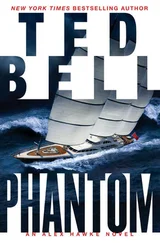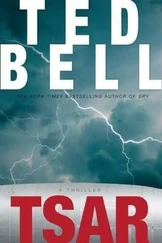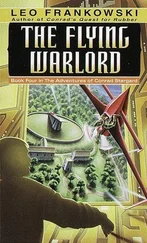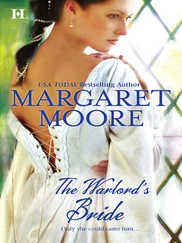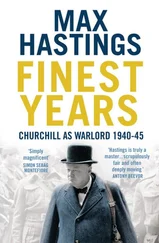She quieted down a bit, dazed.
"Now talk," he said, but he was convinced he wasn't going to get anything out of this one.
He took a moment to compose himself and regarded her calmly. She was still wriggling too much for his taste, and he cracked her skull once more against his altar.
"Do you or do you not intend to answer my questions about your brother's regiment?"
"Yes! Yes I do! Just stop. Don't-"
The bloodlust was up now. He'd never get anything but lies out of this simple girl. And he certainly could not allow her to go free, not now.
Pity.
He raised the knife above his head, bringing it down in a wide ripping arc. The vicious blow tore away most of her throat.
He took a step back to avoid that awful spouting gout of blood and said, "I'm sorry, Faith. That was mean. You should never have trusted me. No one ever should. They all learn that lesson too late, I'm afraid."
She was silent now.
He went over to his miserable cot and lay down, sick to his stomach over what he had just done, swallowing the vomit. The rage blooming inside him, the hot red need to kill finally extinguished, he lay there, disgusted, panting, hating himself, drenched in the hot blood of Faith McGuire. He seemed to have a half-empty wine bottle in his hand and he drank it down in a single draught.
In the morning, Faith would join all the others down in the catacombs. But for now, at last, he could get some sleep. He stared at the old magazine cover of Mountbatten taped to his wall. Scrawled across his face were Roman numerals, scribbled there every night as Smith marked off the remaining days until he struck. A grease pencil hung by a string, and he used it to mark off one more day, one more week.
Now, to sleep.
Perchance, if he was lucky, to dream of his unsuspecting nemesis.
NORTHOLT AIRFIELD, ENGLAND, 1947
LORD LOUIS MOUNTBATTEN STOOD on the glistening tarmac in the dewy light of dawn. He was gazing up with nostalgia at the silver fuselage of the familiar Lancaster heavy bomber. This particular aircraft, a York MW-102, with its four Rolls-Royce Merlin V-12 engines, had flown Mountbatten on countless missions during his days as Supreme Commander, Southeast Asia. Early in the war, he'd converted the Lancaster to his own specifications. Mountbatten had just refitted her yet again with bunks for a relief crew to shorten the flight time required for his upcoming journey.
Lord Mountbatten was a man on a mission, an extremely vital mission, and he literally had not a moment to spare. Millions of lives were literally hanging in the balance and he'd been chosen by his King and the prime minister to be the reluctant savior of these teeming masses.
The Hero of Burma had no burning desire to be remembered by history as a savior. He was a lifelong warrior, moreover, a victor, not some bloody diplomat or politico. One need only look at the legions of decorations now festooned so proudly upon his chest to know him for what he was. His idea of negotiation was a fight to the death. Far more importantly, did he want his name forever engraved in the history books as the man who'd begun this lamentable unraveling of the British Empire? Churchill thought the whole idea of giving up empire was blasphemy. For once, Mountbatten was completely in agreement with his bullheaded nemesis.
If this was not the end of empire, then certainly it was the beginning of the end. He had argued tirelessly with the monarch over his decision to send him to India. He neither wanted the Crown to give up this bastion of empire, nor did he have any wish to preside over this debacle. A religious struggle between two warring religions, Hinduism and Islam, for which there was clearly no solution.
But such was his fate.
His valet had already stowed Lord and Lady Mountbatten's personal luggage on board, all sixty-six pieces of it, so complete it included a set of silver ashtrays that bore the family crest. Also on board, in an old cardboard shoebox stowed in an overhead bin, was a family heirloom. It was the diamond-studded tiara Edwina would wear when her husband was proclaimed the new Viceroy of India.
In the reddish glow of the cockpit, the pilot and copilot of the York MW-102 went through their final preflight checks. Mountbatten and two of his old wartime comrades completed one final walk around the aircraft. With him were Colonel Ronald Brockman, head of his personal staff, and Lieutenant Commander Peter Howes, his senior aide-de-camp. How many trips had they taken on the old girl, Lord Louis was thinking, good Lord, how many, from the frontline posts in the jungles of Burma to every great conference of the war.
His two friends noticed that the normally ebullient Mountbatten seemed gloomy and introspective, his mood matching the weather perfectly. It was not at all, they privately thought, remotely like him. A bit full of himself, but normally a cheery sort.
The copilot leaned out of the cockpit window and announced loudly that the flight was ready for takeoff.
"Well," Mountbatten said to his friends with a shrug and a sigh, "we're off to India. The world's largest powder keg. I don't want to go. They don't want me out there. We'll all probably come home with bloody bullets in our backs."
THE VICEROY'S HOUSE IN NEW DELHI was a palace of such gargantuan dimensions that it could only be rivaled by Versailles or the Peterhof Palace of the tsars. Behind the endless parade of grand white marble columns lining the exterior facade were floors and walls of white, yellow, green, and black marble quarried from the same veins that furnished the astonishing mosaics inside the Taj Mahal.
So long were the palace corridors that, in the basement, servants rode from one end of the building to the other on bicycles. On this particularly historic morning, five thousand of those servants were giving one last polish to the marble, glass, woodwork, and brass of its thirty-seven grand salons and its three hundred and forty rooms. Gold and scarlet turbans flaring atop their heads, armies of servants whose white tunics had already been embroidered with the new Viceroy's coat of arms scurried down corridors on some final errand.
Outside, in the manicured Mogul gardens, more than four hundred gardeners toiled in the sun, perfecting the intricate maze of grass squares, rectangular flower beds, and splashing vaulted waterways. Fifty of those gardeners were mere boys whose sole job it was to shoo away unwanted birds.
And over in the stables, the five hundred horsemen of the Viceroy's personal mounted bodyguard adjusted their scarlet and gold tunics before mounting their superb black horses. The entire household was a frenzy of activity. And all of them-horsemen, chamberlains, cooks, stewards, and gardeners-were preparing for the enthronement of one of that select company of men for whom this splendid palace had been erected, the man who now approached this very moment-the last Viceroy of India.
THE STUNNING BLACK HORSES of the Viceregal Bodyguard suddenly hove into the view of countless thousands jamming the streets of Delhi, colors flying, drums beating, buglers trumpeting. The new viscount turned to his wife, Edwina, and managed a smile. Here we are at last, darling, the smile said.
Home, God help us.
He looked, people later said, like some brilliant film star in his immaculate white naval uniform. Serene, smiling, his adoring wife beside him, Louis Mountbatten rode up to the foot of the grand palace steps to lay his claim to Viceroy's House. He arrived in a gilded landau built half a century earlier for the royal progress through Delhi of his cousin George V.
As the landau pulled to a stop, the bagpipes of the Royal Scots Fusiliers began a plaintive welcome. Stepping down from the carriage, Mountbatten turned and held out his hand for the beauteous Lady Mountbatten. The roar of the crowd was literally deafening. Here was the man who had come to preserve the peace and to preserve this sad, lost country. To somehow prevent the outbreak of an unimaginable religious war that would soak the ground of India with the blood of countless millions.
Читать дальше




